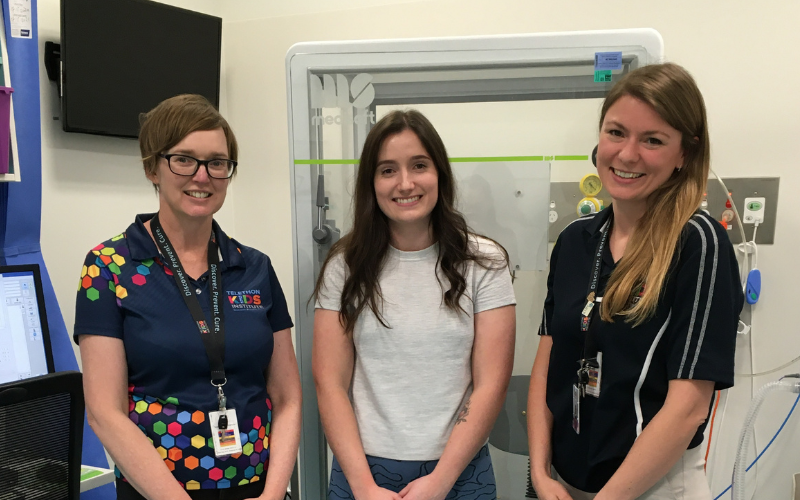
A study which set out to determine ways to predict the long-term lung health of young adults born very preterm has shown that a childhood history of respiratory hospital admission should be a key consideration in the management of preterm children and adults.
It was just five years ago that research led by Associate Professor Shannon Simpson found that survivors of very preterm birth are at risk of declining lung health as they get older – rather than growing out of any lung problems as was previously believed.
This finding was the result of eight years following the progress of 200 babies born very preterm, at less than 32 weeks’ gestation. It was the biggest study of its kind since significant improvements in neonatal critical care during the 1990s drastically improved the chances of survival for preterm babies.
The history-making group of people in this study, known as the West Australian Lung Health in Prematurity (WALHIP) cohort, have now grown into young adults and many have had their lung health tracked from childhood into early adult life.
This latest study Risk factors for poorer respiratory outcomes in adolescents and young adults born preterm published in Thorax on 23 May 2023, aimed to identify if information obtained in the group at 6 and 11 years can predict how the lungs look and behave at 19 years of age.
The results showed that for young adults with bronchopulmonary dysplasia (BPD), a respiratory hospital admission in childhood is a significant risk factor for reduced lung function in adolescence and young adulthood.
In addition, the study found that having a history of asthma in the mother or a personal history of allergies did not have any clear effect.
Associate Professor Simpson, Co-Head of the Children’s Lung Health team at the Wal-yan Respiratory Research Centre, said the information gathered in this study can help healthcare providers better manage the long-term lung health of preterm children and adults.
“Babies born too early often have problems with their lungs, and this is related to how severe their BPD is. But just looking at BPD alone is not enough to predict how their lungs will be in the long run, so we wanted to study other risk factors that could also help to predict the long-term lung health of these individuals,” Associate Professor Simpson said.
As more and more babies are surviving premature birth due to better neonatal care, it's important to identify those who are at the highest risk for long-term lung problems.
“This information is necessary to create guidelines for healthcare providers on how to manage the care of these individuals.”
Dr Elizabeth Smith, Program Manager with the Children’s Lung Health team, said there are very few lung health studies that have tracked preterm individuals from childhood and into early adult life.
The information gained through our team’s research, which is only possible thanks to the amazing group of people who take part in it, will help to guide optimal clinical management of kids born very preterm so that they have the greatest opportunity to grow up with healthier lungs.
This study was supported by the National Health and Medical Research Council and was carried out in collaboration with Curtin University and Perth Children’s Hospital.
Pictured above (left to right) is Naomi Hemy, Senior Project Coordinator with the Children’s Lung Health team, study participant Georgia Rickard, and Dr Elizabeth Smith, Program Manager with the Children’s Lung Health team.
The Children's Lung Health team at the Wal-yan Respiratory Research Centre – a powerhouse partnership between The Kids Research Institute Australia, Perth Children’s Hospital Foundation and Perth Children’s Hospital - investigates lung growth and development through infancy, childhood, adolescence and early adulthood, in health and in chronic lung disease, and the impact of preterm birth on lung health outcomes.
Learn more about the Children’s Lung Health team here
